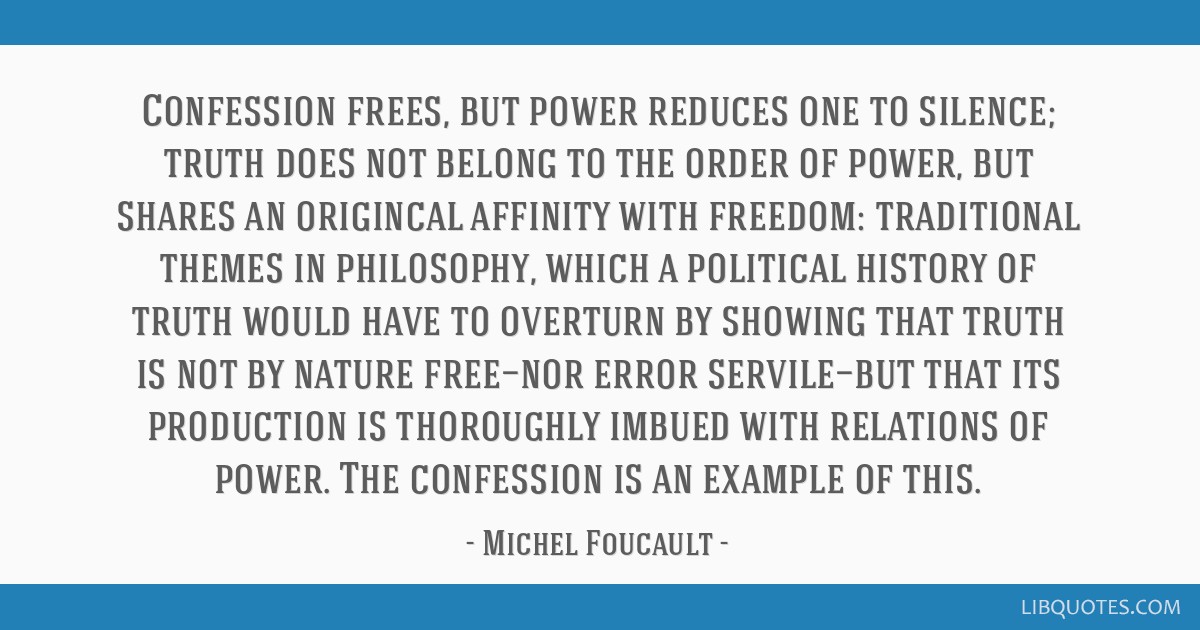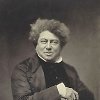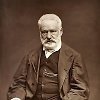Confession frees, but power reduces one to silence; truth does not belong to the order of power, but shares an origincal affinity with freedom: traditional themes in philosophy, which a political history of truth would have to overturn by showing that truth is not by nature free—nor error servile—but that its production is thoroughly imbued with relations of power. The confession is an example of this.
Vol. I, p. 60 - History of Sexuality (1976–1984)























